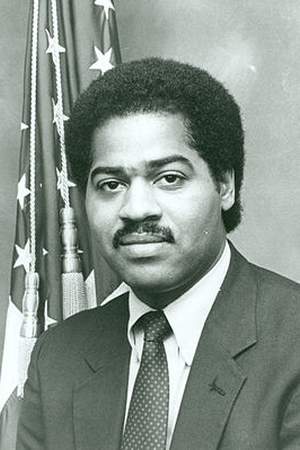Alan Wheat Biography
Alan Dupree Wheat (born October 16, 1951) is an American economist, lobbyist, and politician who served six terms in the U.S. House of Representatives from the state of Missouri from 1983 to 1995.
Early life
His father was James Wheat, an officer and civil engineer in the U.S. Air Force. His mother Emogene (Jean) Wheat was a teacher. Since his father served in the USAF, he grew up in air bases and went to schools in Wichita, Kansas, and Seville in Spain. In 1968, he graduated from Airline High School in Bossier City, Louisiana. Wheat was hired by the Department of Housing and Urban Development as an economist in 1972 after p*ing his B.A. in economics at Grinnell College, in Iowa. Between 1973 and 1975 he joined the Mid–America Regional Council in Kansas City for the same role. In 1975 he then became an aide to Mike White a Jackson County, Missouri, executive.
Missouri legislature
In 1976, he won the election at age 25 to the Missouri general *embly, at the age of 25 and stayed there until 1982.
Campaign for Congress
When Congressman Richard Bolling retired at the 1982 House of Representatives election, Wheat won the Democratic primary by only 1,004 votes (11%). He went on to win the general election to succeed Bolling by beating Republican John Sharp with 58% of the votes.
House career and Senate campaign
Wheat was the youngest member of the United States House of Representatives ever to be appointed to the Rules Committee, and was also the first African-American to represent a district with a non-liberal white majority. He was also a member of the United States House Select Committee on Children, Youth, and Families.
In 1992, Wheat drew four opponents in the Democratic primary election. He was perceived to be vulnerable due to the House banking scandal and his having been one of the House members who had made overdrafts. Wheat survived the primary and defeated Republican Edward “Gomer” Moody, who was a well-known Missouri businessman. Wheat won the general election, which also included two third-party candidates, with 59% of the vote.
After United States Senator John Danforth said he would not run for re-election in the 1994 election, Wheat chose to leave the House and instead run for Danforth's seat. The Senate race was closely watched nationally because Wheat was perceived as a candidate who could win crossover votes, as the House district he represented was 70 percent white. Wheat lost the general election to former governor John Ashcroft. Karen McCarthy was elected to succeed him in the House.
Post-congressional career
After his Senate race, Wheat was chosen as vice president of Public Policy and Government Relations at CARE. He served as deputy campaign manager and director of cons*uent outreach of President Bill Clinton's re-election campaign in 1996. In 1997, Wheat formed the lobbying group Wheat Government Relations.
Wheat joined the national law firm and lobbying practice Polsinelli in 2013, as the firm's Public Policy practice chair.
In 2021, Wheat helped found Wheat Shroyer Government Relations, a public service-oriented lobbying firm, where he currently serves as Chairman.
Wheat currently serves on the board of directors at CARE.
Personal life
Wheat has three children.
See also
- List of African-American United States representatives
References
External links
- United States Congress. "Alan Wheat (id: W000326)". Biographical Directory of the United States Congress.
- Official Site: Wheat Government Relations
- U.S. Senate Office of Public Records: Lobbyist Registration
- Center for Public Integrity: LobbyWatch, Wheat Government Relations
- Appearances on C-SPAN
